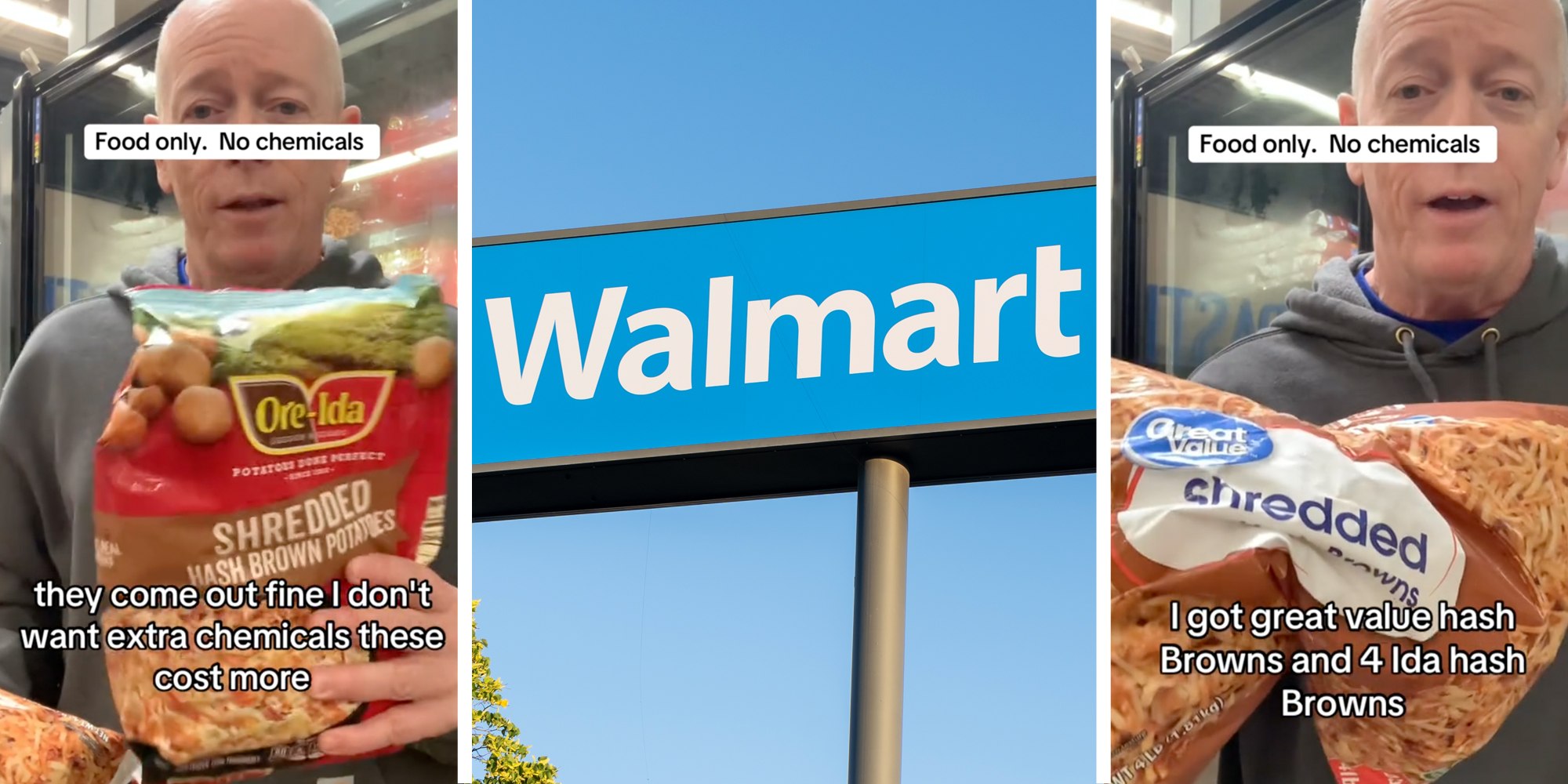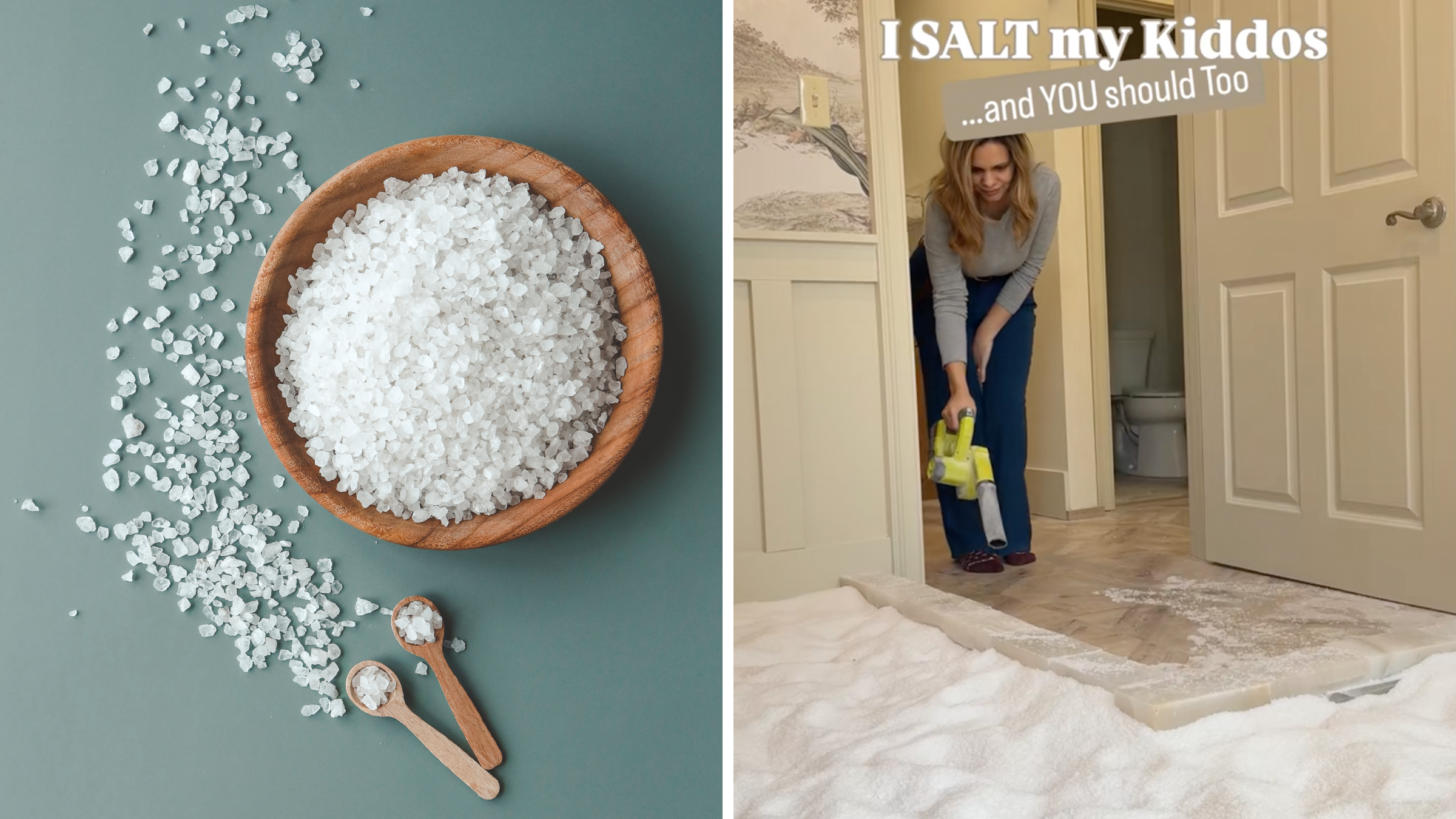Consumers are becoming increasingly aware of food safety concerns in recent years.
In fact, annual surveys by the International Food Information Council show that Americans consistently worry about chemicals in their food. For example, in the 2024 report, 62 percent of respondents said they lack “confidence in the safety of the food supply.”
As a result, this growing concern has fueled movements like non-GMO, organic, farm-to-table, and clean-label initiatives.
Moreover, as awareness grows, more people are scrutinizing product labels at the grocery store, questioning the ingredients in their food.
Recently, a TikToker tackled the ingredients in hash browns, sparking debate among viewers.
What’s in the hash browns?
TikTok user Scott (@papastone101) recently shared a video comparing two popular hash brown brands: Walmart Great Value and Ore-Ida.
In his video, which has reached 1 million views at the time of writing, Scott takes a closer look at the ingredients in each product and raises questions about why certain additives are included.
“Hey, Scott here. I wanna show you something,” he begins, holding up two bags of frozen hash browns. “I got some Great Value hash browns and Ore-Ida hash browns.”
Scott starts by examining the Great Value hash browns. “Look at this,” he says, pointing at the back of the package. “The ingredients, you see that? Potatoes. That’s it. Potatoes.”
He then turns his attention to the Ore-Ida hash browns. “Look at this, OK?” he says, zooming in on the list of ingredients. “The ingredients, I don’t know if you can read this. Potatoes, you got dextrose, then you got sodium acid pyrophosphate to retain natural colors.”
Scott is quick to share his opinion on the additives. “I’ve had these before,” he says, referring to the Great Value brand. “I don’t care what color the potatoes are, OK? I’ve never looked at these and thought, ‘Man, that’s got an odd color.’ No, they’re fine.”
Frustrated, Scott questions why a company would decide to add additives.
“I don’t want extra chemicals,” he says. “These cost more. … Why are you going through the trouble of buying chemicals?”
Scott speculates on the process behind the additives.
“They probably buy huge amounts of chemicals and then add them to the food. Charge me more for them,” he says. “I don’t want the extra chemicals. Just give me the potatoes, and I’ll pay you less price.”
Does American food have more additives than other countries?
American processed foods are known to contain more additives compared to their European counterparts. This difference largely stems from contrasting regulatory approaches between the United States and the European Union (EU).
According to Organic Germinal, the distinction lies in the EU's precautionary stance versus the U.S.'s reactive approach to food additives.
“In other words, in the United States, food additives are innocent until proven guilty, while in Europe, only those additives proven not to be harmful are approved for use,” the site explains.
Ingredients banned in European countries due to potential health risks, such as potassium bromate, titanium dioxide, and brominated vegetable oil, are still used in the U.S., CBS News reports.
However, the FDA has defended its regulatory process, telling CBS that food additives undergo "pre-market evaluation" and that "regulations require evidence that each substance is safe at its intended level of use before it may be added to foods."
Viewers share their thoughts
In the comments section, viewers expressed concern about other food products, while others were surprised to learn the information.
“What about bread?” asked one viewer. “I’ve noticed my bread doesn’t mold anymore.”
“So me buying generic all the years was saving more than just money?! Nice,” said another.
“I just want UK food rules,” stated a third. “I do worry the change will make food more expensive but we’ll see.”
The Daily Dot has reached out to Scott via TikTok comments and direct message. It also contacted Walmart and Ore Ida via website contact form.
Internet culture is chaotic—but we’ll break it down for you in one daily email. Sign up for the Daily Dot’s web_crawlr newsletter here. You’ll get the best (and worst) of the internet straight into your inbox.






